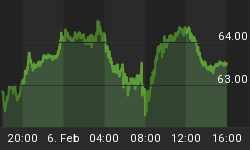According to the NBER, at long last the great recession is officially over. Bloomberg reports Worst U.S. Recession Since 1930s Ended in June 2009.
The longest and deepest U.S. recession since the Great Depression ended in June 2009, lasting 18 months, the National Bureau of Economic Research said.
"The committee decided that any future downturn of the economy would be a new recession and not a continuation of the recession that began in December 2007," the Cambridge, Massachusetts-based bureau's business cycle dating group said today in a statement. "The basis for this decision was the length and strength of the recovery to date." The committee is the accepted arbiter of when recessions start and end.
"The economy has begun to move forward, albeit at a slow, disappointing pace," said Bruce Kasman, chief economist at JPMorgan Chase & Co. in New York. "It's a recovery that feels fragile, and still raises questions about the risks to its sustainability." The odds of the economy falling back into another recession are about 25 percent, Kasman said.
Over 50 and Never Working Again
The New York Times comments on the Fears of Never Working Again
Of the 14.9 million unemployed, more than 2.2 million are 55 or older. Nearly half of them have been unemployed six months or longer, according to the Labor Department. The unemployment rate in the group -- 7.3 percent -- is at a record, more than double what it was at the beginning of the latest recession.
According to a Gallup poll in April, more than a third of people not yet retired plan to work beyond age 65, compared with just 12 percent in 1995.
Older workers who lose their jobs could pose a policy problem if they lose their ability to be self-sufficient. "That's what we should be worrying about," said Carl E. Van Horn, professor of public policy and director of the John J. Heldrich Center for Workforce Development at Rutgers University, "what it means to this class of the new unemployables, people who have been cast adrift at a very vulnerable part of their career and their life."
Older people who lose their jobs take longer to find work. In August, the average time unemployed for those 55 and older was slightly more than 39 weeks, according to the Labor Department, the longest of any age group. That is much worse than in August 1983, also after a deep recession, when someone unemployed in that age group spent an average of 27.5 weeks finding work.
At this year's pace of an average of 82,000 new jobs a month, it will take at least eight more years to create the 8 million positions lost during the recession. And that does not even allow for population growth.
Assuming it does take 8 more years to create 8 million jobs, of one accounts for population growth, unemployment will be 8% or more all the way to 2020.
Indeed America has Lost One Decade - Another One in Progress Now
Lost Decade Lowlights
- Americans living in poverty rose sharply to 14.3% from 13.2% in 2008
- Poverty level is the highest since 1994
- 43.6 million Americans are living below the official poverty threshold
- Inflation-adjusted income of the median household fell 4.8% between 2000 and 2009
- The number of 25-to-34-year-olds living with their parents rose 8.4% to 5.5 million in 2010 from 2008
- Child poverty rose to 23.8% for kids under six in 2009, compared to 21.3% a year earlier
What America Really Needs
Given the structural problems in the US, there is no strong reason to think this decade will be much better than the last. I talked about those structural problems in Response to Nouriel Roubini regarding "America Needs a Payroll Tax Cut"
Roubini says "America Need a Payroll Tax Cut".
I say what America needs most right now is an honest appraisal of the sorry economic mess we are in, politicians who will work in genuine bipartisan effort to tackle our numerous structural problems, and willpower from everyone to make short-term sacrifices for the long-term benefit of the country.
To date, all the Fed and Congress have done is bail out the banks and the bondholders (in other words the wealthy), at the expense of the middle class.
Given the problems are numerous and deep, the solutions will undoubtedly require a series of across the board sacrifices. Those sacrifices need to start with public unions, the gigantic military complex, government employees in general (Congress and state legislatures in particular), as well as anyone bailed out or benefiting from the numerous and massive fiscally unsound policies of the Fed and Congress.
So far, we do not even have an admission by the President, by Congress, or by most economists as to what the problems are. Instead everyone wants to "stimulate" something, typically by throwing money at problems.
This is why the problems are unlikely to be fixed, and this is why we are likely to remain in a stagnant economy that produces few jobs for the remainder of the decade.
While the recession is over, it certainly does not feel like it. Moreover, because we fail to address the structural issues, the odds of slipping back into another recession are exceptionally high.















